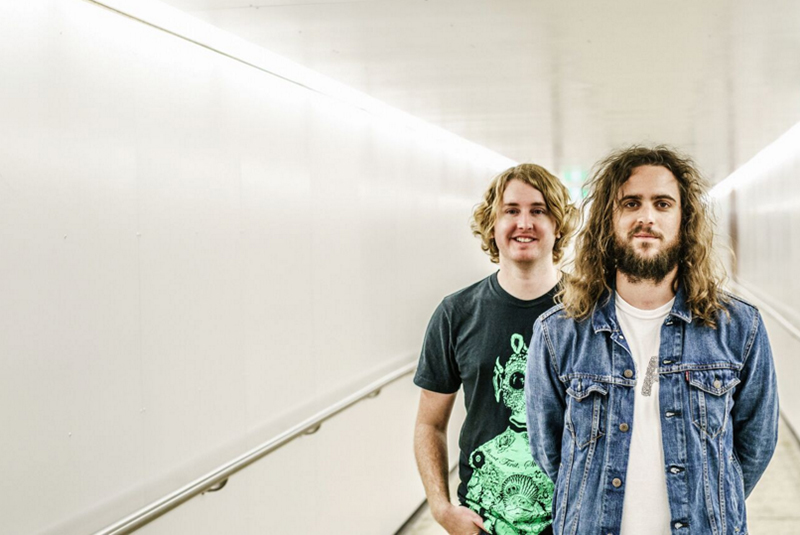DZ Deathrays: Return to the U.S.
Music Interviews
SLUG: What was the difference between recording for your first album, Bloodstreams and then the follow up, Black Rat?
Ridley: Bloodstreams was kind of a combination of like all these songs that we had and that were road-tested. We had done a few years touring them around the world, and we knew which ones worked, and which ones didn’t work in a live setting. Then the second record we just had all these songs that were just like 90-percent finished and we got a producer on board—a guy called Burke Reid from Toronto—and it was the first time we worked with a producer. So he helped us, you know, hone in the songs and get them to 100-percent … which was really interesting for us because we had never played many of them live. It was kind of weird playing them live for the first time and just hoping that they were good … We’re doing the next record with him again. He just really fit in really well.
SLUG: And when might we expect that third album?
Ridley: Well, hopefully [the] later half of this year. We just released the single, and the next one will probably be coming out around June, I imagine.
SLUG: And that’s “Blood On My Leather.” Is that a good representation of the third album?
Ridley: Yeah. I think we’re just gonna go write a whole bunch of party tracks.
SLUG: So lately, I know on a few occasions you guys have been touring and playing with a third [member]. Is that becoming more consistent, or are you guys still mainly relying on your loop pedals?
Ridley: Um no, we’re gonna try to stick with the third person now. We got this guy, Lachlan Ewbank, who’s been a friend of ours for a couple years now, and um yeah, I guess it’s kind of when we wrote Black Rat that we put a lot of extra guitar lines on the tracks … I mean before, when you play little gnarly shows to like 200 people in sweaty rooms, it doesn’t matter if you’re missing a few bits of the songs, ‘cause everyone’s going crazy. It sounds shitty, but it’s just fun. So when you get to the bigger venues, like a couple of thousands sort of kind of venues, you really need the third person there to make it, you know, sound like the songs and sound as big as possible.
SLUG: I know that in Sydney, Parsons does DJ sets for a little extra income. I guess the question is: Is it possible to live off a band that isn’t selling out arenas?
Ridley: It’s pretty difficult. Like, even some of my friends in way bigger bands than us, you know, they still have to do stuff on the side just to get by. It’s kinda tough. [No one] buys records anymore, so the only money getting made is from touring, and half the time, you know, if you’re going out investing in new foreign markets like coming over to the U.S., or touring in different countries you’ve never toured before, you’re always going to lose money on those … unless you’re really doing like, maybe, 2,000-count venues every night around the world—yeah, you’re still probably still struggling.
Whether they’re struggling or not, DZ Deathrays will continue to move forward. With two albums released and a third on its way, the band shows little sign of slowing down at all. DZ Deathrays are in the U.S. right now, and if you find the opportunity to attend one of their gnarly shows, I would take it. If they start moving any faster, the era of their intimate shows filled with 200 sweaty people and thrashy riffs on loop might start to diminish. Catch them on March 26 at Boise’s Treefort Musical Festival.
